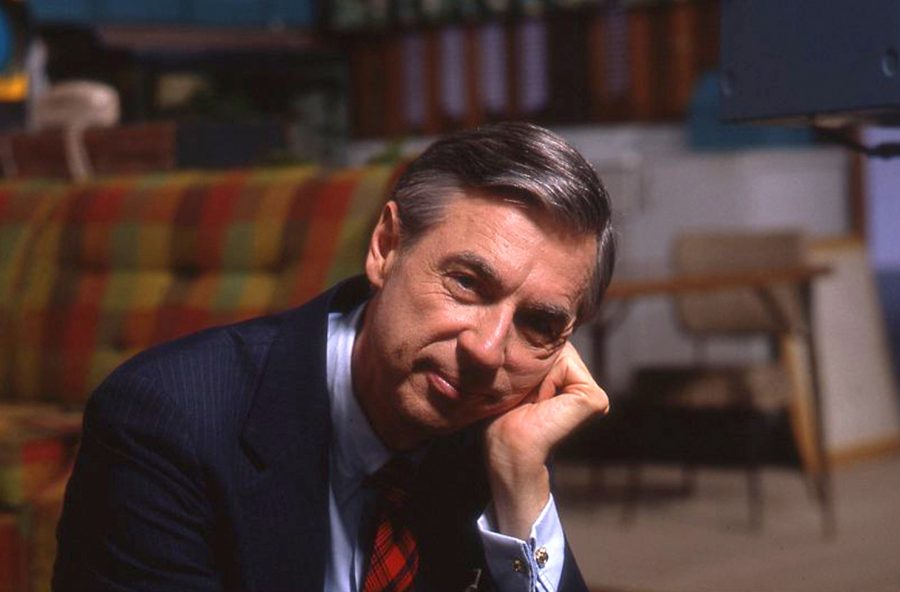‘Won’t You Be My Neighbor’ Remembers Mr. Rogers
Fred Rogers, known as the host of “Mister Rogers’ Neighborhood,” life is being profiled in the new documentary “Won’t You Be My Neighbor.”
April 23, 2018
During a time in which the film and TV industry is plagued by issues of abuse of power, especialy in sexual assualt cases, the mere concept of Mr. Rogers, the host of the long running children’s television show “Mister Rogers’ Neighborhood,” seems almost alien. It feels unbelievable that at one point, there was someone so genuinely compassionate, who sincerely and earnestly just wanted to use television to help kids grow and learn.
While providing a few exciting glimpses into the personal life and beliefs of the enigmatic Fred Rogers, “Won’t You Be My Neighbor,” directed by Morgan Neville, affirms this vision of the Mr. Rogers we know and love. Yes, he really was that kind, despite the many rumors that surrounded Rogers during his program’s 30 plus years of syndication.
“I don’t think we realize how much we needed this film,” Tisch Graduate Film Chair Barbara Schock said at a Q&A session following a screening of the film last Thursday at Cantor Film Center with one of the film’s producers, Nicolas Ma, a current graduate student in Tisch School of the Arts.
For those unfamiliar with “Mister Rogers’ Neighborhood” — the PBS program Fred Rogers starred in from 1968 through 2001 — the film does a strong job getting viewers up to speed with the general history of the minister turned TV icon and why he was important. A brisk 90 minutes, the film manages to balance the history of the show, interviews and going-ons behind the scenes.
Behind-the-scenes clips, like the candid moments when Rogers’ closest friends talk about what he was really like, are where the film shines. These moments not only affirm that Rogers was a kindhearted friend and a surrogate father, but also give a new outlook on masculinity for those who knew him as well as his audience. The film also sheds light on Rogers’ humanity. He had a wry, often subversive sense of humor and boundless ambition. Behind the scenes, Rogers laughed along with the cheeky, raunchy humor of his young, rebellious crew.
The film also emphasizes that many of his more subtle on-camera moments were deliberate statements. Rogers’ choice to have Officer François Clemmons, a friendly, African-American policeman, enjoy his pool was a deliberate statement on the segregation of public pools. Even in his first episode, there were political statements about the fears of change.
The film also tackles some of the more difficult aspects of Rogers, like his difficulty with castmate Clemmons’ homosexuality, which the film attributes to the possibility of PBS canceling the show. It also dealt with Rogers’ reaction to 9/11, his struggles with some of the parodies of his work, the various accusations that he was softening a generation and the bouts of depression from which he suffered. While the film could have grappled with these topics more, weaker documentaries would have just completely ignored these.
The post-film Q&A revealed some interesting information about Ma’s history with Rogers, as Ma actually appeared on “Mister Rogers’ Neighborhood.” He also discussed the beginnings of Rogers’ empathy for children. Rogers’ family adopted a child when he was 11, which allowed him to get first hand experience of childhood during his teenage years and shaped his vision for what children needed.
An earnest, breezy and optimistic film, it feels like an antidote to much of the misery and dourness of the world and media today. It’s a pleasure to watch and a delightful look into an almost unbelievable era in television.
“Won’t You Be My Neighbor” will hit theaters on June 8.
A version of this article appeared in the Monday, April 23 print edition. Email Carter Glace at [email protected].
























































































































































